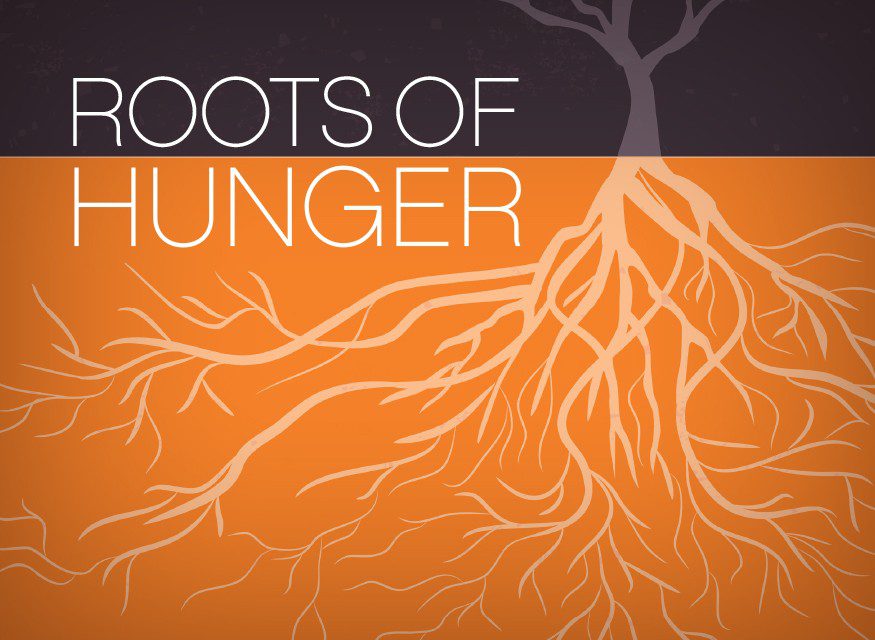By Marlysa D. Gamblin
In 2020, the COVID-19 pandemic further revealed the legacy of unresolved racism by disproportionately harming Black and Brown communities. The looming question that many policymakers—including President-elect Joe Biden and the new Congress—must face is how to address these racial inequities.
The answers can be found in a new report from Bread for the World Institute: “Racially Equitable Responses to COVID-19.”
The report compares the national death rates per 100,000 people in each racial group: 80 for Black people, 67 for Indigenous people, 59 for Pacific Islanders, and 46 for Latino/as—compared to 36 for white people. Whether the data comes from the county, state, or national level, the report shows that Black communities have the highest COVID-19 infection and death rates of any racial or ethnic group.
The report finds that race, particularly being Black, is the strongest determinant of death from COVID-19—a stronger indicator than risk factors such as older age or having diabetes. As such, the first overarching recommendation of the report is to apply a racial equity lens in response to the crisis—and to go one step further by centering Blackness to undo the anti-Black racism that has led to these inequitable results.
The second overarching recommendation of this report is to center the experiences of Black women—an intersection that is often ignored. Centering Black women is critical to achieve racially equitable responses to COVID-19 because they have been the hardest hit. For instance, although Black women only account for 13 percent of the female population, they represent almost 40 percent of women who are dying from COVID-19. The majority of Black workers are Black women—many of whom have had exposure to the virus from their frontline, lower paying jobs. Black women were also the hardest hit by unemployment.
Other recommendations in the report include immediate responses for food insecurity, income, and housing, as well as long-term systemic responses to close the racial wealth divide and to eliminate racialized concentrated poverty, racial health inequities, and racism more broadly.
As the Biden-Harris team transitions to the White House and a new session of Congress begins, we recommend that our elected officials and other policymakers address the racial inequities born from anti-Black racism, which have widened during the pandemic:
- Use racial equity resources to design and implement legislation and policies, including Bread for the World’s Racial Equity Scorecard Tool, which outlines how to determine to what degree a proposal applies a racial equity lens. To center Black women, the data used must be cross-sectional and disaggregated by race and gender rather than simply by race or gender.
- Make SNAP responsive to the needs of all participants by applying a racial equity lens. Black, Indigenous, and Other People of Color (BIPOC) eligible for SNAP face a growing wealth divide compared to their white counterparts at the same income level, resulting in many BIPOC households running out of food more quickly. To address this, SNAP should change the benefits formula to provide additional support to BIPOC households, accounting for gender inequity, in proportion to how COVID-19 has impacted their households and communities.
- Work with states to extend eviction moratoriums for BIPOC households, especially BIPOC female-headed households in areas of racialized concentrated poverty and high rates of COVID-19.
- Increase stimulus payments to BIPOC families in areas with the highest rates of COVID-19 infection, death, economic loss, and food insecurity (in proportion to these racial inequities and accounting for gender inequity). The spring 2020 stimulus payments were universal and did not account for the disproportionate impacts of COVID-19 on BIPOC communities. Centering Black women would result in them receiving the largest increase in stimulus payments, followed by other BIPOC men and women.
- Continue unemployment compensation in proportion to need for BIPOC households in areas of racialized concentrated poverty with the highest rates of COVID-19 death, economic loss, and food insecurity. This approach would also include eligibility for BIPOC undocumented immigrants with no public charge penalty.
- Provide racially equitable support for BIPOC workers in essential jobs. Employer-based benefits (e.g. sick leave or child care) must be determined after applying a racial equity lens for BIPOC workers, proportionate with the impact of the crisis on their racial/ethnic communities. For example, because African American workers are more likely to contract the virus or have family members who contract the virus, they would be given additional sick leave to care for themselves and family members.
- Convene a taskforce to outline a plan to end structural racism in all its forms, focusing particularly on anti-Black racism and centering Black women. This plan would coordinate anti-racist efforts in individual policies, across various topics, and within all agencies. This plan would also create a Racial Equity Office in the White House and in Congress to lead development of policies that are racially equitable and to repair harm from historical trauma.
Marlysa D. Gamblin is senior domestic policy advisor, racial and gender divides at Bread for the World Institute.



